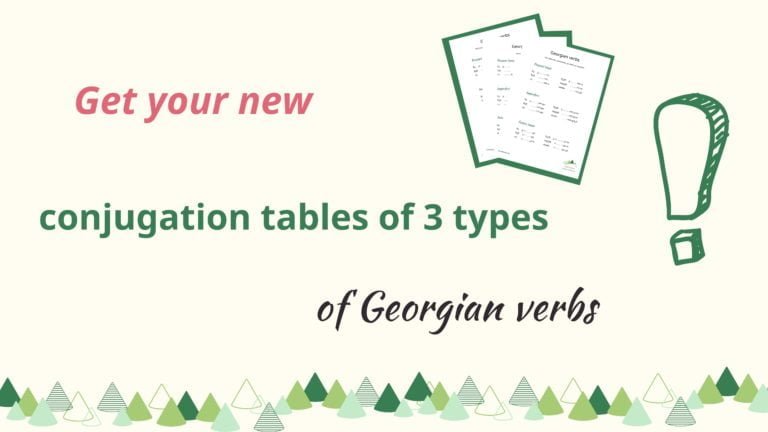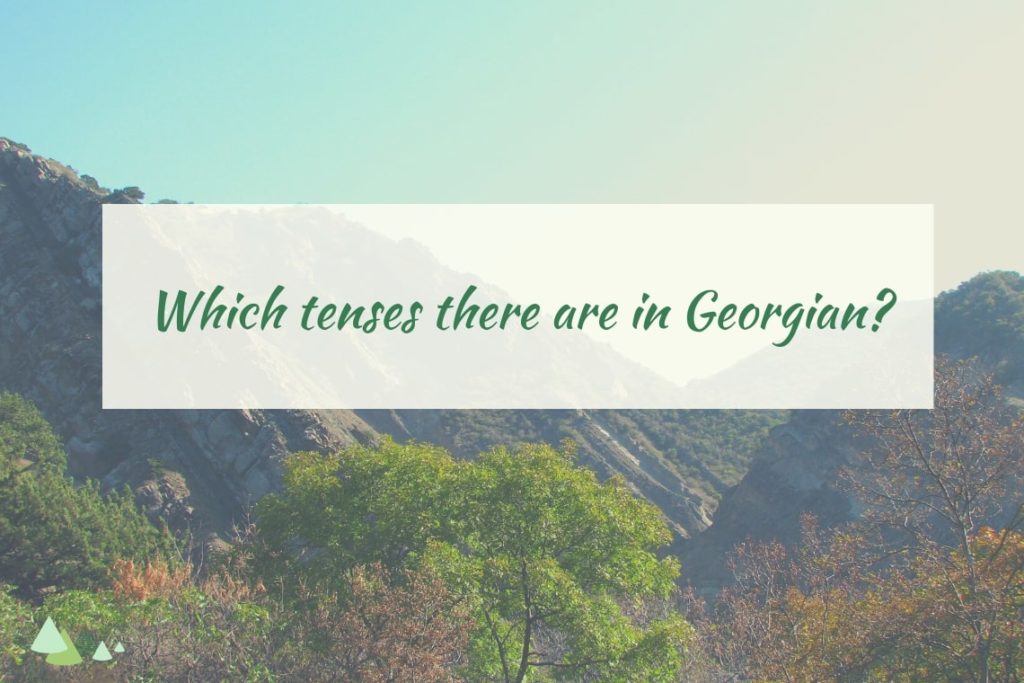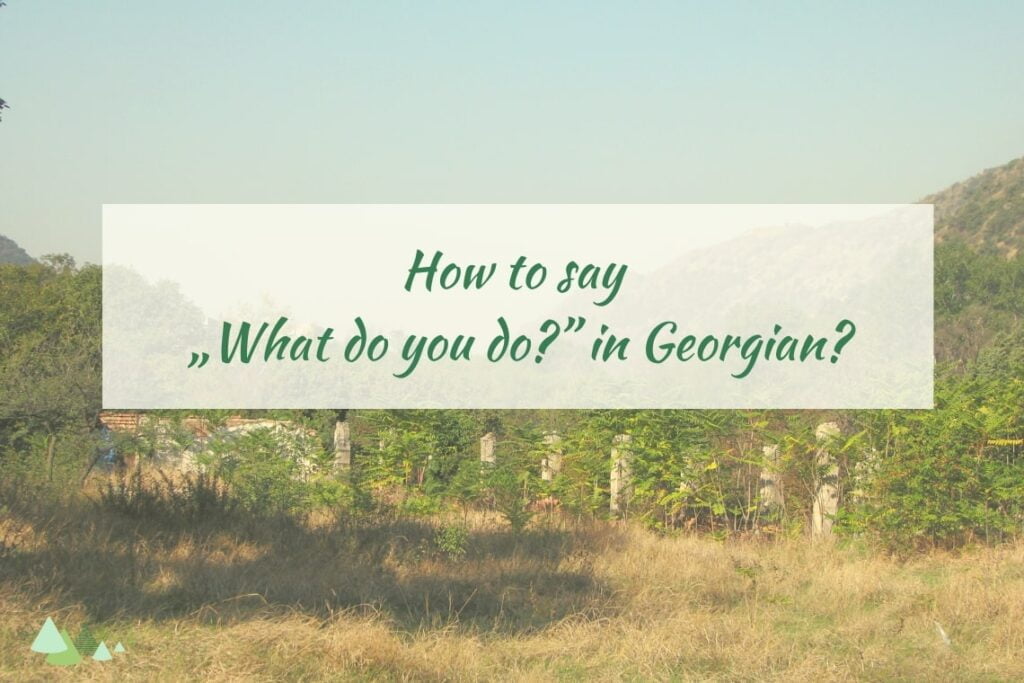If you cannot understand Georgian verbs, their conjugation, endings etc. this article is for you! We analyze here active and middle voice of Georgian verb in present tense.
Georgian verbs may give you an impression they are hard to learn and illogical, but those appearances are a bit deceptive. Besides that big group of irregular verbs, the rest can be grouped. Today we’ll focus on the active voice verbs and middle voice verbs (not the passive voice verbs though) – the ones who have so called v- marker. What the middle voice is in Georgian we’ll be talking more in a separate post. However this level of grammatical terms and knowledge is more useful on intermediate levels or higher. Therefore if the last two sentences sounded for you more like black magic spell, do not worry.
What is v- verbs group and so called v- marker?
One of the ways to distinguish groups of verbs in Georgian by the foreigners is to divide them into those who have ვ– letter in the 1st person singular (in present) and those which have მ-. The examples of Georgian verb in present tense representing the first group are like this:
To do: გაკეთება – მე ვაკეთებ
To work: მუშაობა – მე ვმუშაობ
To study: სწავლა – მე ვსწავლობ
To play (an instrument): დაკვრა – მე ვუკრავ
You may notice that those verbs have two things in common. Firstly, all of them have ვ– marker. Secondly, all of them in this form end with the consonant. To be more precise the above mentioned verbs represent 3 subgroups: the ones ending with –ობ, –ებ and –ავ.
If you are wondering now, why we separate them then, the answer is quite simple. Their forms slightly differ in other tenses, so it’s much easier to distinguish them
How do the ვ- verbs conjugate in present tense?
The general rule for Georgian verb in present tense which would be beneficial to learn and remember looks as follows. The spaces, where the dots are, is for the verb itself. Maybe it is good to mention now, that this is a slight simplification of this conjugation, however provided level of detail is enough at the beginning of your study. We will be adding more details to this rule in the next articles. That is why, let’s start studying Georgian verbs with this:
მე ვ-……..
შენ ………
ის ……….- ს
ჩვენ ვ-…..-თ
თქვენ ……-თ
ისინი ………-ენ
It doesn’t look so complicated, isn’t it? Now, as you have already the “I” forms of our 4 above verbs, use the rule and conjugate them on your own, as a part of your exercises. This is quite useful way to remember those verbs.
Which cases are connected with the Georgian verb in present tense?
Maybe you already know there are 7 cases in Georgian. One uses them similarly like in Russian or German. The group of verbs we analyze today in present tense has always subject (the one doing the action) in 1st case (Nominativ) and the direct object (this what we do) in 3rd case (Dative). Some of those verbs do not have direct object and it directly comes from the meaning of the verb. For example in sentence “I study Georgian” Georgian is the direct object. However in a sentence “I live in Tbilisi” there is no direct object.
Therefore the next rule that’s wort remembering looks like that:
Subject in 1st case (Nominative)
Direct object (if exists) in 3rd case (Dative)
How to learn Georgian verbs in present tense?
We are preparing for you a separate mini course on how to study Georgian in general. You can join our Caucasian Mail (our newsletter) and sign up on the course once it will be already available. However, now we will not leave you without any answer of course. Firstly, once you learn new verb, write down its conjugation in all persons. Then think which other verb looks similar to this one. If you learn also other tenses, e.g. present and past of the verb „to do”, then compare both of them and see the differences. It will speed up the remembering process.



